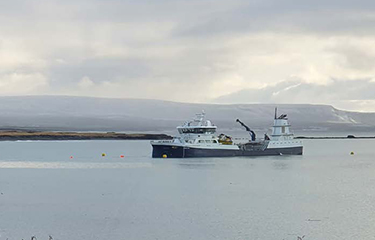Ice Fish Farm confirms presence of ISA at two sites

Iceland-based salmon farming company Ice Fish Farm has confirmed, in an announcement to the Euronext Growth market, it has detected infectious salmon anemia (ISA) at its farming operations in Hamraborg and Svarthamar.
The company first announced a suspected infection on 27 May in a similar announcement on the Euronext Growth market, where it is listed. The company said that the consequences of the disease “are difficult to estimate now,” but will likely result in a reduced overall harvest volume in 2022 and 2023.
The company said its Hamraborg site is currently housing roughly 890,000 fish with an average weight of 2.137 kilograms each, while the Svarthamar site contains roughly 1.1 million fish with an average weight of 0.798 kilograms each.
The company did not offer an estimate on the financial impacts of the ISA discovery, but said it “continues to analyze and will return with more information once it is available.”
The company reported its operational earnings before interest and taxes (EBIT) dropped in Q1 2022 by NOK 12.9 million (USD 1.3 million, EUR 1.2 million), compared to earnings of NOK 6.6 million (USD 700,503, EUR 651,935) in the same period in 2021. The drop in earnings was despite an increase in harvested volume, with the company announcing it harvested 2,712 metric tons (MT) of salmon in Q1 2022 compared to 1,496 MT in 2021.
The lower earnings were attributed to a lower EBIT-per-kilogram, which dropped to a loss of NOK 4.80 (USD 0.50, EUR 0.47) per kilogram in Q1 2022 compared to earnings of NOK 4.4 (USD 0.46 EUR 0.43) per kilogram in 2021. The higher volume and lower earnings, the company said, is due to an early harvest of wounded fish after a fish transfer in autumn 2021.
Photo courtesy of Ice Fish Farms






Share